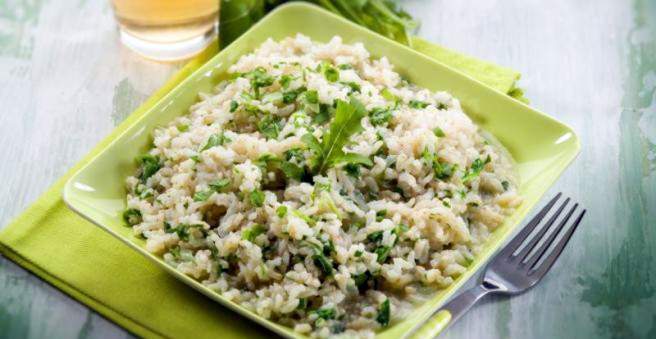Nutrition has a major impact on the treatment and disease course of kidney failure. Anyone who adheres to the recommendations of the doctors or dieticians, therefore, can significantly support the treatment of chronic renal insufficiency. Read here what the optimal kidney diet looks like.

Acute renal insufficiency
In acute renal failure may lead to increased protein degradation and lipid metabolism disorders. Pay attention to your calorie intake. Recommended are 35 to 40 kilocalories per kilogram of body weight and day.
Drink about as much as you left the day before. If the urine excretion is too low, patients should eat potassium, sodium and low protein. If the urine excretion is too high, a potassium and sodium rich diet is recommended. This compensates for the loss of mineral salts. You can eliminate the fluid loss by drinking enough.
Chronic renal insufficiency
Chronic renal insufficiency: low protein diet
Reduced protein intake may appear to slow the progression of renal insufficiency. Therefore, you should not consume more than 0.6 to 0.8 grams of protein per kilogram of body weight per day.
The consumed protein should have a high biological value, ie consist of many protein building blocks, which the body can not form itself (essential amino acids). The combination of different protein sources ensures the supply of all important compounds. Ideal protein mixtures include, for example, potato and egg, beans and egg, milk and wheat, egg and wheat, as well as legumes and wheat.
Also recommended is the use of low-protein specialty products such as low-protein flour and products made from it (bread, pastries).
Attention! Controlled protein intake is only for patients who do not need dialysis (see below).
Chronic renal insufficiency: diet low in phosphate
Chronic renal insufficiency has negative effects on bone metabolism, among other factors – bone stability decreases. In order not to increase this effect even further, a low-phosphate kidney diet is recommended, because too much phosphate makes the bones more brittle.
The recommended amount of phosphate is 0.8 to 1 gram per day. Restrict the consumption of high-phosphate foods. These include, for example, nuts, cereals, offal and wholemeal bread. Many dairy products such as milk, yoghurt and buttermilk also supply a lot of phosphate. Cheaper cheeses such as cottage cheese, cream cheese, Camembert, Brie, Mozzarella, Harzer Roller and Limburger are cheaper.
If possible, avoid foods with production-related phosphate additives such as processed cheese, cooked cheese, canned milk and some sausages. You may want to ask about the phosphate content when buying sausages in the butchery. On the ingredient list of foods, you can see phosphate additives on the E numbers E 338 to E 341, E 450 a to c, E 540, E 543 and E 544.
Incidentally, there is a close link between the phosphate and protein content – protein-rich foods usually also contain a lot of phosphate.
Chronic renal insufficiency: low potassium diet
Especially in the advanced stage of renal insufficiency patients should eat low-potassium, in order not to increase the increased potassium due to the renal failure potassium levels in the blood. Too much potassium can cause cardiac arrhythmias.
Depending on the severity of the kidney weakness, a potassium intake of 1.5 to 2 grams per day is recommended. The best way to avoid potassium-rich foods and drinks. These include:
- Fruit and vegetable juices
- Dried fruit (raisins, dates, figs)
- nuts
- Bananas, apricots, avocado
- Pulses (peas, beans, lentils etc.)
- Tomatoes, spinach, Swiss chard, broccoli, kale, Brussels sprouts, fennel, olives
- Sprouts and germs
- Mushrooms (fresh and dried)
- Potato dry products (potato chips, potato dumplings and mashed potatoes)
Chronic renal insufficiency: amount of drinking
Although many patients suspect the opposite: drinking a lot can not improve kidney function. Rather, over-hydration can even accelerate the progression of chronic renal insufficiency. Talk to your doctor or dietician about how much fluids you should take daily.
Chronic renal insufficiency: diet on dialysis
Limited fluid intake is particularly important in patients whose chronic renal insufficiency necessitates dialysis treatment. Keeping the limited amount of fluid requires a lot of discipline. The daily amount of drinking depends on the urine excretion within 24 hours. As much fluid as you excrete, you should also reintroduce the body – plus about half a liter extra per day. Keep in mind, however, that you can cover some of your fluid requirements through your diet. Not only soups, but almost all foods contain water (for example, fruits, vegetables, yogurt, pudding, fish, meat).
Tips for thirst quenching:
- Chewing gum without sugar
- Suck ice cubes
- Lemon pieces suck
- Avoid salty and very sweet foods
- Rinse mouth
People with renal insufficiency who are on dialysis should control their weight daily. If the weight gain exceeds the level recommended by the physician, you should consult your doctor immediately.
As mentioned above, is a low protein Diet in renal insufficiency not recommended under dialysis treatment. The reason: Through the treatment, protein and protein components are lost, which must be compensated by an increased protein intake.